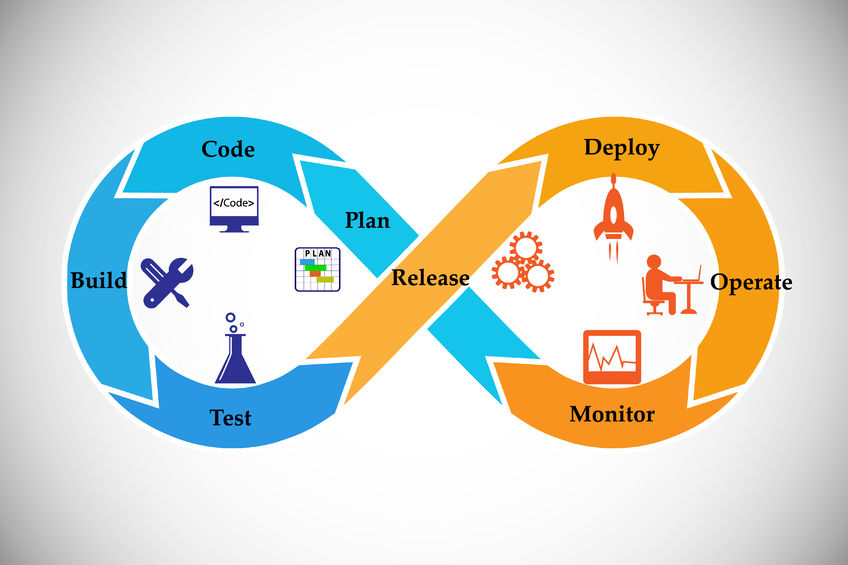When Engineering drives Growth: Why we release everyday
The benefits of how an engineering-driven culture drives the growth of Holistics, a data analytics company

At Holistics, our engineering team updates our product on a daily basis, and both major product changes as well as minor bug fixes are aligned to the daily release schedule. This is even more frequent than advocated by the Agile development methodology, and, coming from an Enterprise IT background, I almost fell out of my chair when I first heard of this approach. Software development and deployment has evolved considerably in the last few years, and I hope to cover the benefits and drawbacks of Holistics’ approach.
Software Deployment: The Past
Every change in a software product and the process of deployment itself pose risks that range from unexpected software behavior impacting User Experience to reputation risk that can drive people away from the product altogether. Large enterprises, especially those in sensitive industries, such as Insurance and Financial Services, have dedicated Release Management teams that thoroughly evaluate individual deployments, and regularly review software development and testing processes to ensure that the risk is minimal to the company.
The cost of managing the risk, in addition to fielding a dedicated team of experts, is the documentation, overhead, and “bridgeline” calls that developers, testers, and product managers need to be on. The added bureaucracy has been the accepted way as the alternative was answering to angry C-suite executives or a PR disaster.
Then came Agile
Agile and Lean development has been increasingly adopted by companies of different sizes as it cuts down the software development lifecycle (SDLC) to 2–3 weeks as opposed to months.
The benefits of agile go beyond merely making the process efficient: teams could now incrementally build their product based on actual customer feedback and usage data, making the final product more user friendly.
Agile, Lean, and Scrum have increasingly become the way-of-life for software developers, especially those in startups and small businesses.
The Cloud Era: CI/ CD
Now, companies are increasingly adopting the paradigm of Continuous Integration (CI), Continuous Delivery (CD), which has been a game-changer.
CICD allows teams to orchestrate multiple developers making changes simultaneously to different aspects of the product.
This, when done well, allows teams to deploy software on a more frequent basis, sometimes multiple times a day. Naturally, to get CICD right, organizations have to achieve a certain level of discipline and should have nailed the right processes, two things that are much easier said than done.
While developing this capability is difficult, it lets you “ship” products much more quickly and allows developers to deploy bugs fixes faster than before. Implicitly, this paradigm has increased the tolerance of risk and unexpected failure as it can be fixed within the same day it is reported.
Why does this matter?
Choices made by your engineering team can impact your team positively, and can even become assets that fuel growth. The benefits of having a frequent — daily in Holistics’ case — software deployments are:
Bug Fixes
Holistics provides a reporting platform that data analysts and software engineers use for their company’s unique use-cases and data needs. There is only so many “functional requirements” that our excellent testers can validate, as every new customer potentially brings in a test-case that is new to the team.
Thus, when our customers report a software issue, it is prioritized, fixed, tested, and deployed within the same day so that the user experience continues to improve. Companies use Holistics to enable decision making within their teams, and we believe we should be as agile and nimble as our customers’ decisions and needs tend to be.
Accommodating Customer Requests
Even when the product is working well, our customers regularly request for minor modifications and changes to different aspects of our product. If the request is easy to implement and test, our daily schedule allows us to delight customers by improving their user experience as soon as possible.
The Holistics product has improved, both in terms of features and experience, thanks to feedback from our customers. The ability to deliver for our customers’ requests is a big part of earning more feedback, as our users trust us to listen, learn, and implement effectively.
Learning
The daily schedule has increased the intensity with which we learn about customer needs, out-of-the-box solutions available in the market, and new engineering techniques. Moreover, our experimentation cycle of Try — Test — Outcome (Pass / Fail) has shortened, allowing us to get feedback, both from customers as well as internal product specialists, much more quickly.
There has been one more benefit that might be more specific to Holistics: our growing team of young engineers have developed their skills rapidly. They tend to operate at the level of more senior engineers working in traditional companies.
OK, what is the downside?
In addition to the 5 technical considerations articulated here, there are two problems that we faced.
Firstly, the developers were creating improvements and features faster than the marketing team could keep up with. In most startups, feature releases and product updates are typically accompanied by emails to existing customers, external marketing campaigns, and the creation of multimedia assets such as “How-To” Documents, Videos, Infographics etc. While following an Agile sprint schedule, it is easier to have marketing, sales and product teams on the same page, and execute a plan based on a timeline. With more frequent updates, we learned that it is absolutely critical for marketing and product engineering teams to interact often so that the priorities align.
Secondly, a recent roll-out could impact the sales team by impacting one or more aspects of the sales workflow. For instance, one change caused the website to double-count each trial sign-up user thereby posing a risk of overstating the number of new prospects. However, these impacts are far and few, and usually have other teams within the company monitoring the impact. Thus, it is important for all teams to understand the philosophy and benefits of the choice that the engineering team made so that Sales, Marketing, and other departments work WITH the engineers as opposed to starting a blame-game.
A source of Growth
One of the powerful enablers of growth has been this daily-release decision. In the data analytics and Business Intelligence space, customers often require technical assistance and customizability that is not provided out-of-the-box. Having a daily release served our customer interest and made us responsive, generating word-of-mouth publicity that drives traffic to our website.
The most important validation of this was: when some of our regular users moved to other start-ups or companies, we routinely observe their evangelizing our product to their new employers. This provides our growth team the confidence to run referral programs which bring quality leads as opposed to expending effort and money on advertisements with lower conversion rates.
Thus, a competitive advantage could emerge from decisions or actions that might be invisible to your company’s marketing or sales teams. Holistics tripled its revenue with just 1 Growth/Marketing team member because the key source of growth was fueled by the engineers.
Conclusion
A 1% improvement every day outperforms a 10% improvement each month by 460%. At Holistics, we have realized this benefit by building a feature-rich BI Product that provides more functions than our competitors in just 2 years since launch. Furthermore, Holistics has delighted customers with responsiveness and trust, as evidenced by consistently high ratings on “Customer Support”.
What's happening in the BI world?
Join 30k+ people to get insights from BI practitioners around the globe. In your inbox. Every week. Learn more
No spam, ever. We respect your email privacy. Unsubscribe anytime.

